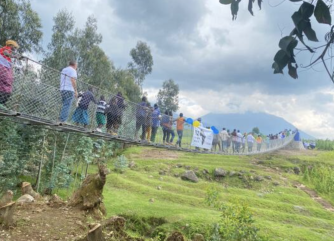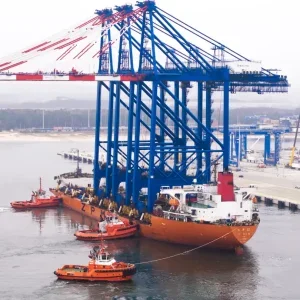
Kito Crosby has extended its partnership with Bridges to Prosperity (B2P), an organization that envisions a world where poverty caused by rural isolation no longer exists.
B2P is a US-based non-profit organization that partners with local communities, partners, and foundations to build trail bridges that connect residents to education, healthcare, and economic opportunities. With a track record of over 500 trail bridges built across 21 countries, B2P has positively impacted over 1.8 million individuals worldwide.
Nivi Sharma, CEO of Bridges to Prosperity, said; “Rural isolation is a root cause of poverty, and connectivity is the gateway to opportunity. Kito Crosby’s reliable products have been instrumental in enabling our safe, sustainable, and scalable solutions, making them an integral partner in our bridge-building endeavors.”
Kito Crosby will provide essential products like wire rope clips, turnbuckles, snatch blocks, special trolleys, manual hoists, and wire rope tension meters for 40 bridge construction projects in Rwanda and 12 in Uganda as well as rigging awareness training for safer lifting and rigging operations.
Additionally, the company will dispatch a team of 10 members from diverse backgrounds worldwide to aid in the construction of a trail bridge in Rwanda, scheduled for November. Since the start of Kito Crosby’s collaboration with B2P in 2022, Kito Crosby has supported the construction of more than 140 bridges in Africa.
“We commend Bridges to Prosperity for their remarkable impact on communities and are honored to contribute our products and expertise to their mission. We have previously sent employees to sites in Uganda and Rwanda in 2022 and 2023, and we are proud to send 10 passionate employees who will also directly engage in a bridge construction in Rwanda this year,” said Robert Desel, CEO, Kito Crosby.
“In collaboration with B2P and our global channel network, we envision a world where rural isolation is eliminated, enabling families to access healthcare, children to attend school safely, and farmers to reach local markets reliably.”






